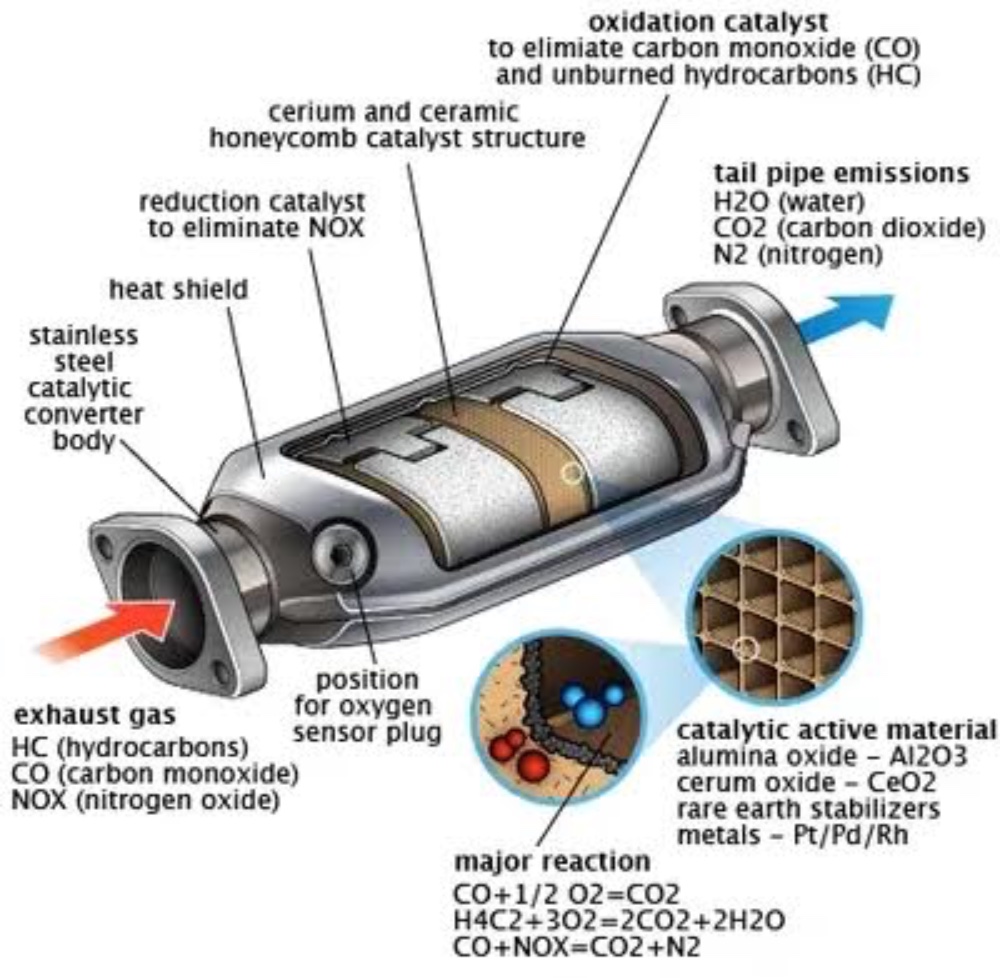Auto Troubleshooting
ENGINE DOES NOT START | Catalytic converter failure
CATALYTIC CONVERTER FAILURE

CATALYTIC CONVERTER FAILURE
The catalytic converter is a very important part of the emissions control system on your vehicle. It's usually good for the life of a vehicle, but occasionally it does fail and may cause your vehicle refused to start.
Here are 4 signs of a failing catalytic converter.
1. Check Engine Light: Your check engine light being on can be one of the first signs that will indicate that your catalytic converter may be failing. However, to properly identify whether this the cause of the illuminated is because of the catalytic converter, a diagnosis will be needed to be done.
2. Decreased Gas Mileage: A common result of failure in the catalytic converter is a decrease in gas mileage. This is because if your catalytic converter becomes clogged, exhaust will become trapped in your car's engine. If your car is experiencing a large increase in its gas consumption over a short period of time, a failing catalytic converter could be a cause.
3. Decreased Performance: If your converter is clogged, the exhaust builds up in your car can reduce performance drastically. A car with a clogged catalytic converter can feel like it has no acceleration, even if you're on the gas pedal, or can even fail to start-up.
4. Rattling Noises: Your catalytic converter consists of small, honeycomb-shaped components that can cause a rattling sound when broken. If your catalytic converter is broken, this rattling should be loudest when the car starts, and should get worse over time. If you are experiencing a rattling noise, coupled with any of the other symptoms on this list, there is a good chance your catalytic converter is the cause.